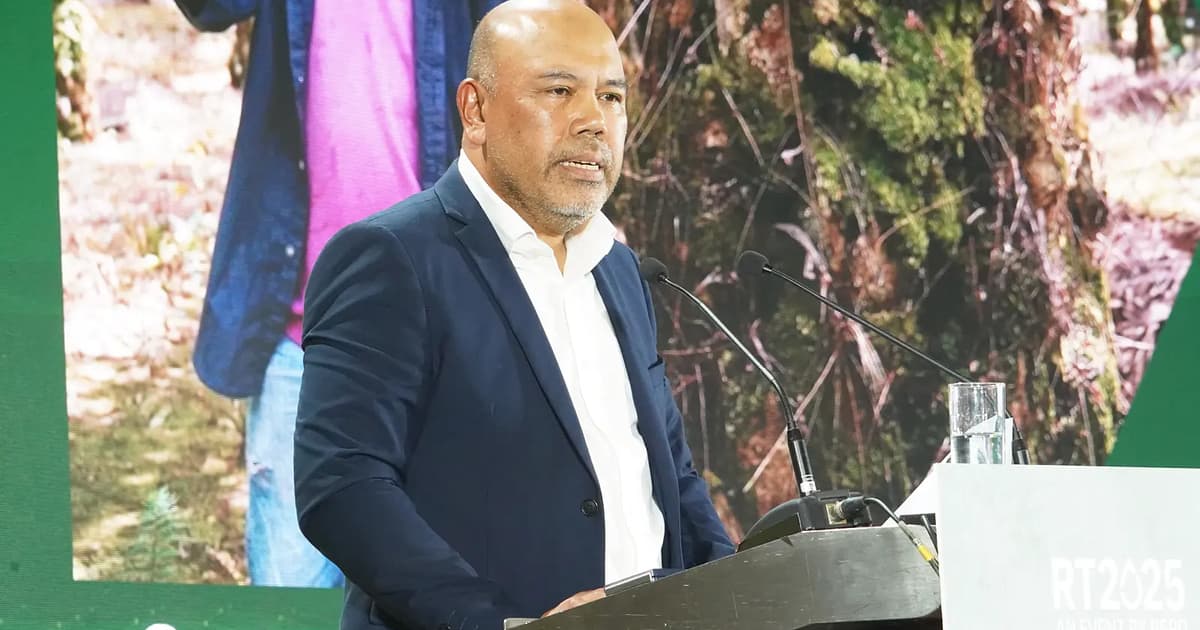
Malaysian Palm Oil Board chairman Helmy Othman Basha has called out the double standards faced by the industry when it comes to the issue of sustainability and environmental impact.
Helmy, managing director of SD Guthrie Bhd, said palm oil had been depicted as one of the greatest “environmental villains” over the past three decades, citing campaigns pushing against the sector.
On the other hand, he said, fossil fuel companies escape the same magnitude of scrutiny and criticism despite their emissions constituting the largest direct cause of climate change.
“When fossil fuel use is often excused in the name of ‘energy security’, sustainable palm oil is banned in the name of ‘deforestation’.
“Thanks to all these double standards that developing countries cannot afford to fight against, a new challenge is emerging, one that affects global availability itself. The relentless negativity towards palm oil has resulted in some markets pushing it away.
“And so, the anti-palm oil folk may soon get their wish – the world is already seeing the steady disappearance of palm oil from the global market,” he said at the Roundtable Conference on Sustainable Palm Oil.
Helmy said major palm oil producers like Indonesia and Malaysia were already looking inward, using more palm oil domestically for energy, which meant less being available for exports.
He said this meant that the world was losing access to the most efficient, productive and sustainably produced vegetable oil, and questioned what these other nations would replace it with.
Helmy told the conference organised by the Roundtable on Sustainable Palm Oil (RSPO) he was not denying that the industry took part in deforestation, but pointed out that “human activity usually yields negative effects on the environment”.
“The singling out of one crop as the primary cause of deforestation was at best disingenuous, and at worst, a crime against humanity. All those calls to ban palm oil for causing deforestation allowed more serious damage caused by other industries to continue.
“If every hectare of oil palm plantations in the world returns to forests, the world would be much worse off. Deforestation would increase as less efficient replacement crops are planted to meet global vegetable oil demand.
“Socio-economic challenges will befall thousands of smallholders and small companies in producer countries, as they turn towards less financially rewarding crops.
“Now, as the narrative seems to be catching up with reality, we can focus on the real issues that need to be addressed,” he said, adding that a responsible industry was defined by progress, not perfection.
The MPOB chairman added that smallholders in countries like Papua New Guinea, Indonesia and Malaysia constituted the backbone of the industry and that barring them from expansion was essentially denying them the opportunity for social mobility.
“It is our responsibility as members of the RSPO and for the RSPO itself to find a way to allow the people of Papua New Guinea and other countries like it to find a balance between environmental integrity and social justice.
“We must support smallholders to grow responsibly, not lock them out of prosperity. Controlled, planned, and responsibly-managed smallholder expansion – with proper safeguards – must be part of the solution,” he said.
Walk the talk, RSPO members urged
Helmy also urged all RSPO members to walk the talk when it came to defending the sector, saying some of them claimed to believe in sustainable palm oil yet sold products with the “no palm oil” label emblazoned.
He urged these companies to show good faith in the industry by standing by and supporting the sector, while speaking up and calling out the bad when necessary.
“We cannot preach sustainability in this room but reinforce the old rhetoric that palm oil is bad. Make no mistake, when you advertise the absence of palm oil (in a product), what you are saying is: ‘This product is good, because there is no palm oil in it.’
“To believe in ‘Certified Sustainable Palm Oil’ is to defend it consistently, publicly, and without apology. If you are a global brand, you can’t hide by claiming your business in Spain is run independently from the one in Malaysia,” he said.
He said both RSPO and the industry have come a long way over the decades despite the steep learning curve they have had to climb.
“In the case of palm oil, that progress has been driven by regulations, corporate ‘No Deforestation, No Peat and No Exploitation’ policies, satellite monitoring, and sheer hard work from growers on the ground – standards that the RSPO itself has helped shape.
“And yes, by those buyers who recognise the cost of all these efforts and agree to pay premiums,” he said.






